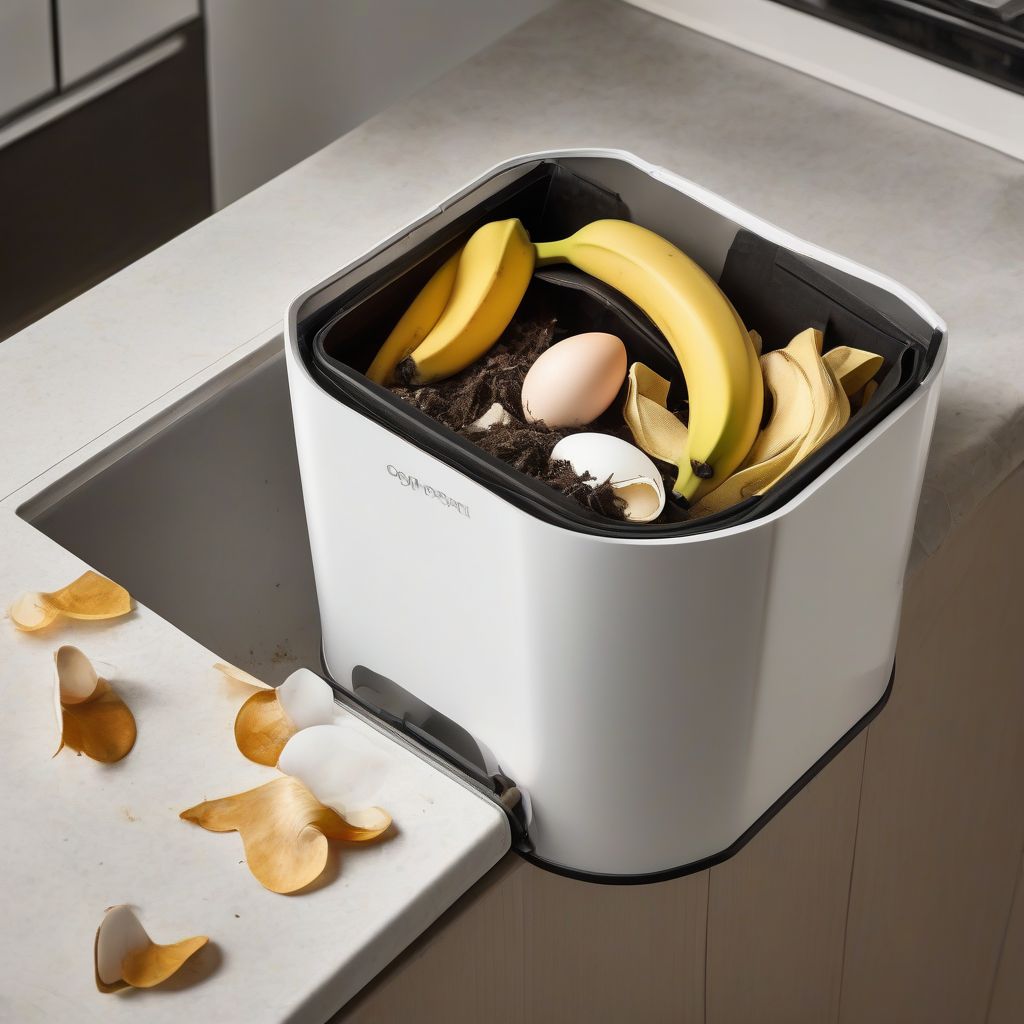Have you ever tossed vegetable peels into the trash and thought, “There must be a better way?” If you’re passionate about eating healthy and reducing your environmental impact, then composting your kitchen scraps is the perfect solution! Composting transforms your food waste into nutrient-rich “black gold” for your garden. This natural process not only benefits your plants but also significantly reduces the amount of garbage going to landfills.
Why Compost Kitchen Scraps?
Imagine a world where your food waste nourishes your garden instead of piling up in landfills. Composting kitchen scraps offers numerous benefits:
- Reduces Landfill Waste: Food waste makes up a significant portion of what we throw away. Composting diverts this waste and lessens the burden on landfills.
- Creates Nutrient-Rich Soil: Compost acts as a natural fertilizer, enriching your garden soil with essential nutrients. This leads to healthier plants and reduces the need for chemical fertilizers.
- Environmentally Friendly: Composting reduces greenhouse gas emissions released from decomposing organic matter in landfills.
- Saves Money: By creating your own compost, you’ll reduce the need to purchase commercial fertilizers and soil amendments.
What Kitchen Scraps Can You Compost?
You’d be surprised by how many of your kitchen leftovers can be composted! Here’s a quick guide:
Do Compost:
- Fruits and Vegetables: Peels, cores, rinds, ends – you name it!
- Coffee Grounds and Filters: These add nitrogen to your compost pile.
- Eggshells: Crushed eggshells provide valuable calcium to your compost.
- Tea Bags: Remove staples, and you’re good to go!
- Yard Waste: Grass clippings, leaves, and small twigs can be added to your compost bin.
Avoid Composting:
- Meat, Bones, and Fish: These attract pests and can create unpleasant odors.
- Dairy Products: Similar to meat, dairy products can attract unwanted critters.
- Oily or Greasy Food: These items can disrupt the composting process.
- Treated Yard Waste: Avoid using grass clippings or yard waste treated with pesticides.
Choosing the Right Compost Bin
Selecting the right compost bin depends on your space and composting style.
- Outdoor Compost Bins: These are great for larger quantities of kitchen scraps and yard waste. They come in various sizes and materials, such as plastic, wood, or metal.
- Indoor Compost Bins: These are ideal for smaller kitchens and offer a convenient way to compost indoors. Look for bins with charcoal filters to control odors.
 Indoor Compost Bin
Indoor Compost Bin
Building Your Compost Pile
Now that you have your bin, let’s get composting!
- Layering: Start with a layer of “browns” such as dry leaves, shredded newspaper, or cardboard. These provide carbon.
- Greens: Add a layer of “greens” like kitchen scraps. These provide nitrogen.
- Moisture: Keep the pile moist but not soggy. Think of a damp sponge.
- Turning: Turn the pile regularly (every 1-2 weeks) to provide aeration and speed up decomposition.
Troubleshooting Tips
- Foul Odors: Add more “brown” materials to your compost pile to balance out the nitrogen-rich “greens.”
- Fruit Flies: Cover your kitchen scraps with a layer of “browns” to deter these pesky insects.
- Slow Decomposition: Turn the pile more frequently and ensure it has enough moisture.
Harvesting Your Compost
After several months, you’ll notice the compost transforming into a dark, crumbly material with an earthy aroma – that’s the “black gold!” It’s ready to use when it resembles rich soil and no longer heats up when turned.
Using Your Compost
Compost can be used in various ways to enhance your garden’s health:
- Topdressing: Spread a layer of compost over your garden beds to improve soil structure and fertility.
- Potting Mix: Mix compost with potting soil to create a nutrient-rich medium for your potted plants.
- Compost Tea: Steep finished compost in water to create a liquid fertilizer for your plants.
[amazon bestseller=”compost bin”]
Composting kitchen scraps is a simple yet rewarding practice that aligns perfectly with a healthy and eco-conscious lifestyle. By embracing this natural process, you’re not only reducing your environmental footprint but also nourishing your garden and closing the loop on your food waste. So, start composting today and watch your garden thrive!
Do you have any questions or tips about composting kitchen scraps? Share your thoughts and experiences in the comments below! Don’t forget to explore our other articles on organic gardening tips to create a sustainable and thriving garden.
